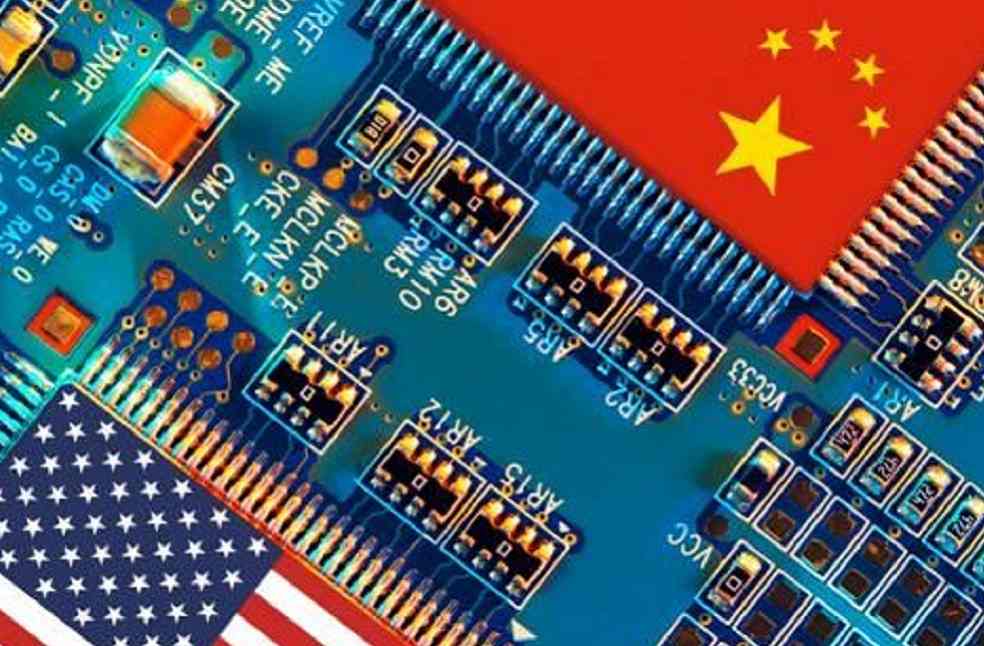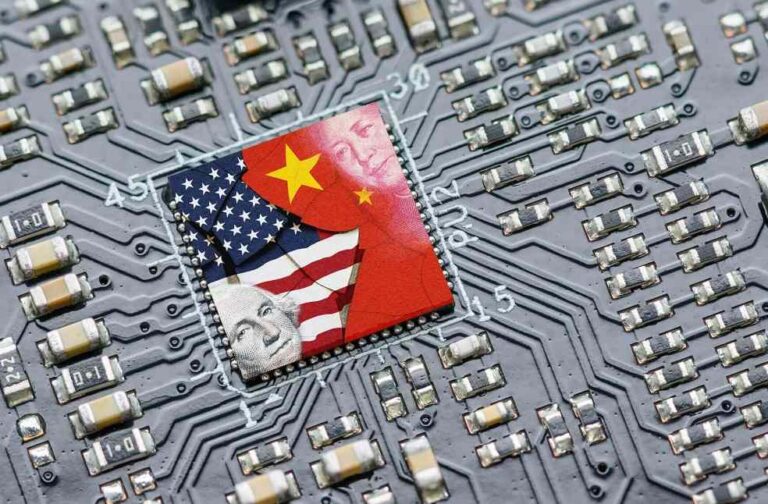The tech rivalry between the US and China sharpens as radical US lawmakers push for stricter chip restrictions against Huawei Technologies, China’s tech powerhouse.
The tension escalated following Huawei’s unveiling of its cutting-edge Mate 60 Pro smartphone series, which relies on Huawei’s proprietary chips. This move raised eyebrows in Washington, leading to increased scrutiny and concern over technology transfer and trade implications.
In a surprising statement reflecting the complex global tech environment, Huawei’s founder, Ren Zhengfei, voiced admiration for US tech giant Apple, even as he navigated his company through US-imposed sanctions and criticisms.

China’s tech experts suggest that a US-enforced chip ban won’t deter the progress of China’s chip industry. Instead, it may solidify China’s drive towards technological self-sufficiency. This could have implications for the global chip market, potentially affecting US giants that have benefited from a robust international chip supply chain.
Mike Gallagher, a notable voice in the US House of Representatives, champions stricter controls. He plans to engage with the Semiconductor Industry Association (SIA) to discuss tighter control over chip technology sales to China.
Reacting to the heightened scrutiny, Mao Ning, the spokesperson for the Chinese Foreign Ministry, emphasized the risks of misusing national security concerns to suppress legitimate business endeavors. Such actions, Mao noted, could destabilize global production and supply chains.

Tech analyst Liang Zhenpeng highlights potential repercussions for the US, suggesting that further restrictions might reduce the market share of US firms in China and stifle collaborative innovation.
While tensions mount, Huawei maintains an open stance towards global collaboration, emphasizing the value of mutual respect and learning. Ren Zhengfei, while expressing admiration for competitors like Apple, underscores Huawei’s commitment to navigating global challenges and bolstering its technological platform.
Analysts predict continued scrutiny from US officials on China’s chip sector. They emphasize the need for increased collaboration and understanding to mitigate potential disruptions in the tech industry. Fu Liang, a Beijing-based tech expert, stresses that any move to disrupt global supply chains will adversely impact both US and Chinese businesses.

The trajectory of this tech standoff remains speculative, but the implications for the universal tech domain are unmistakably profound.
LATEST NEWS | UK ETDA Act: Digital Trade Shift Boosts Global Business



